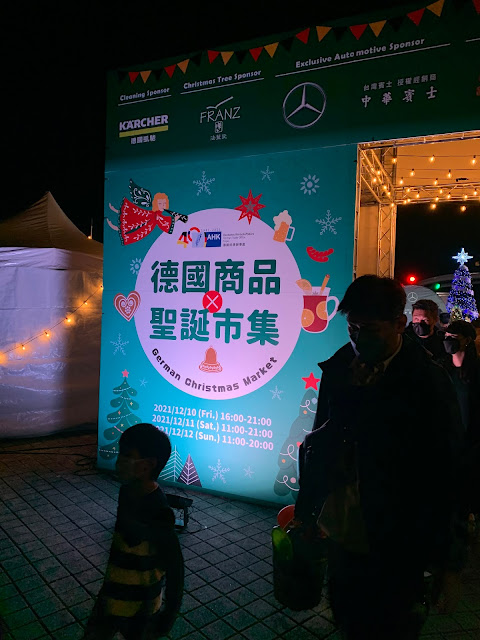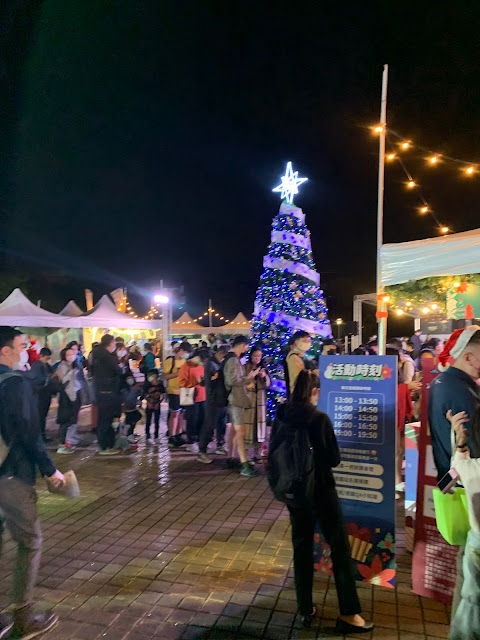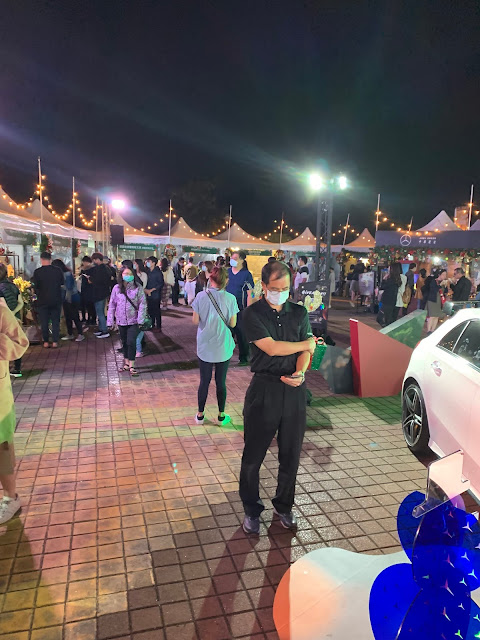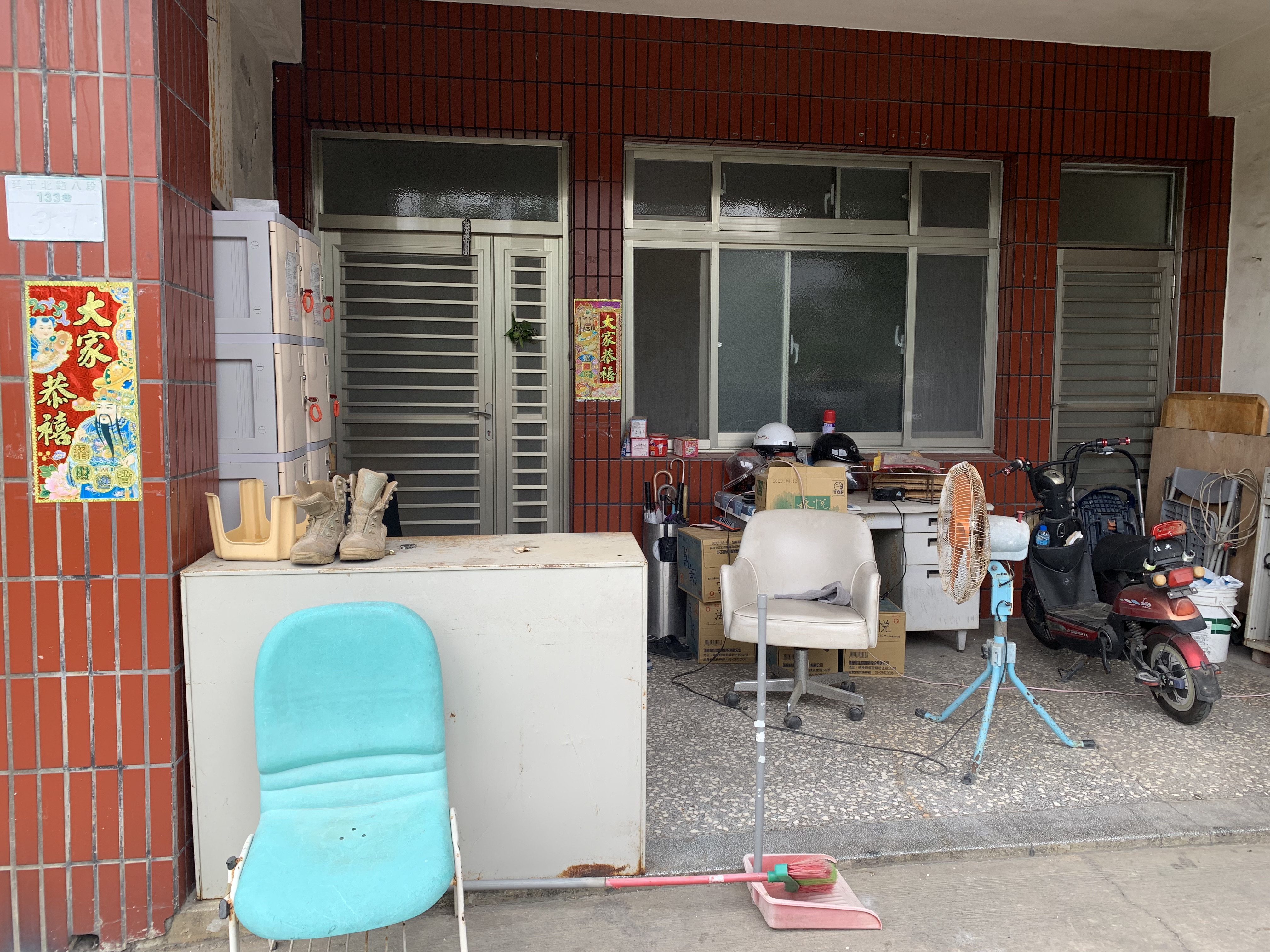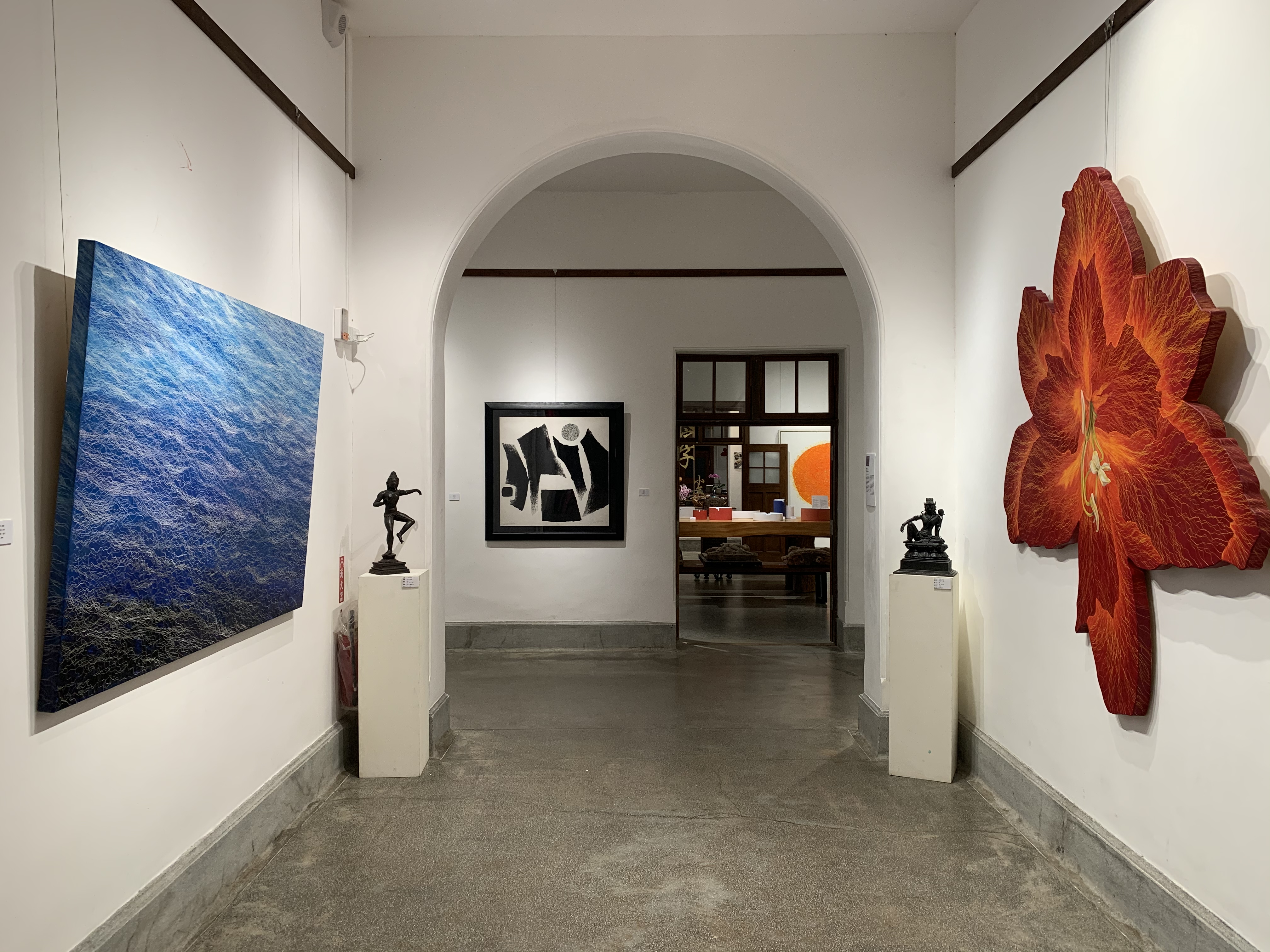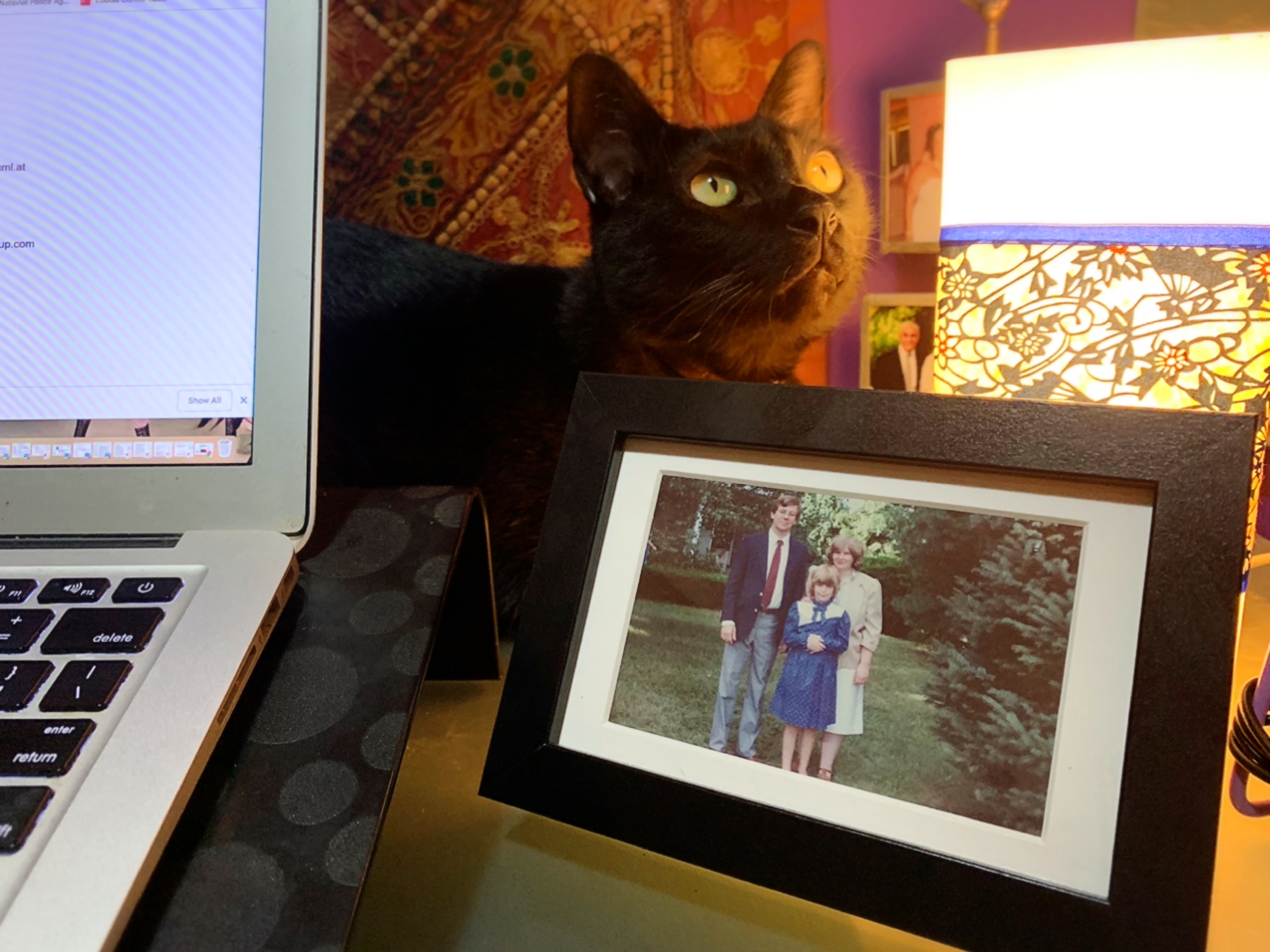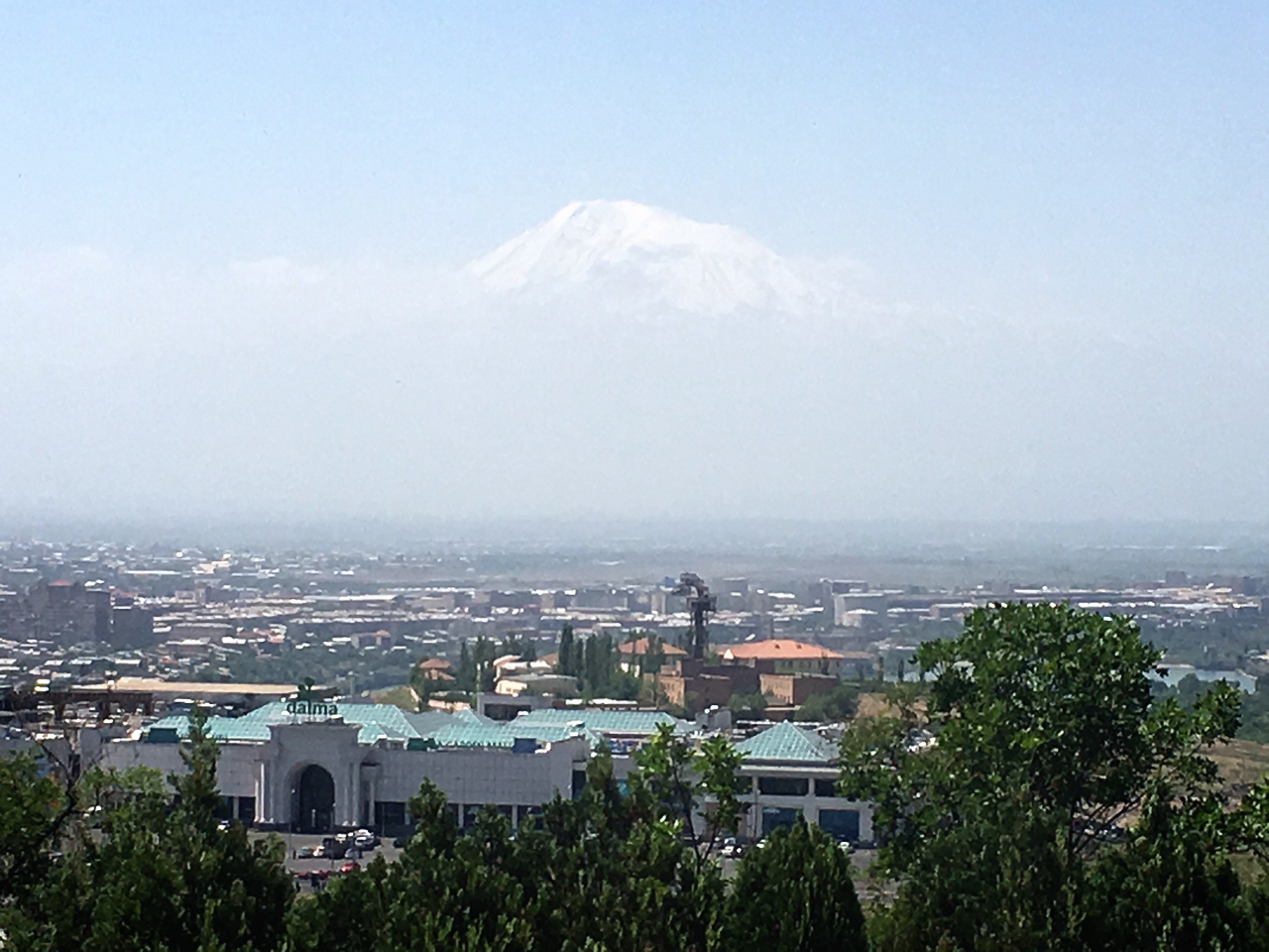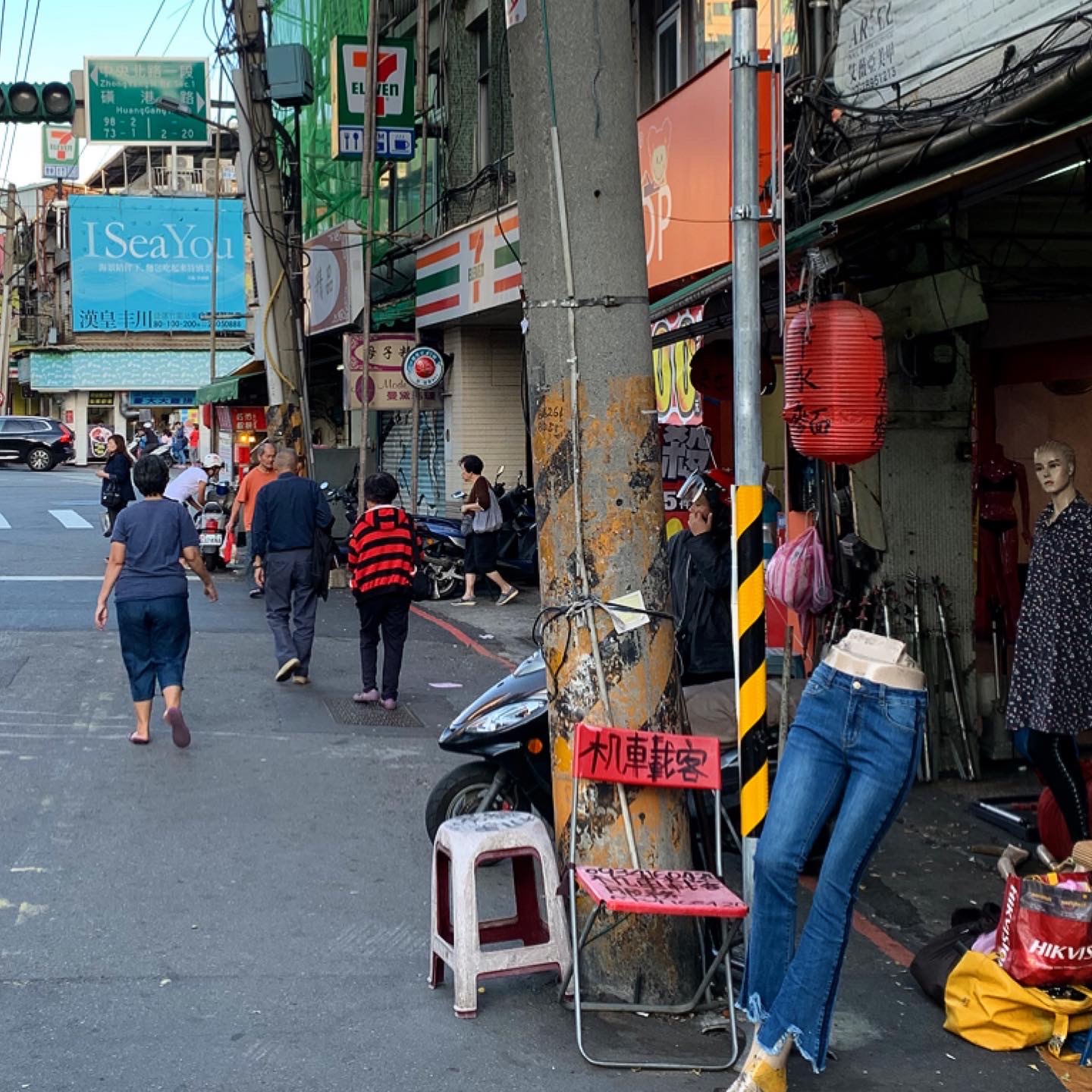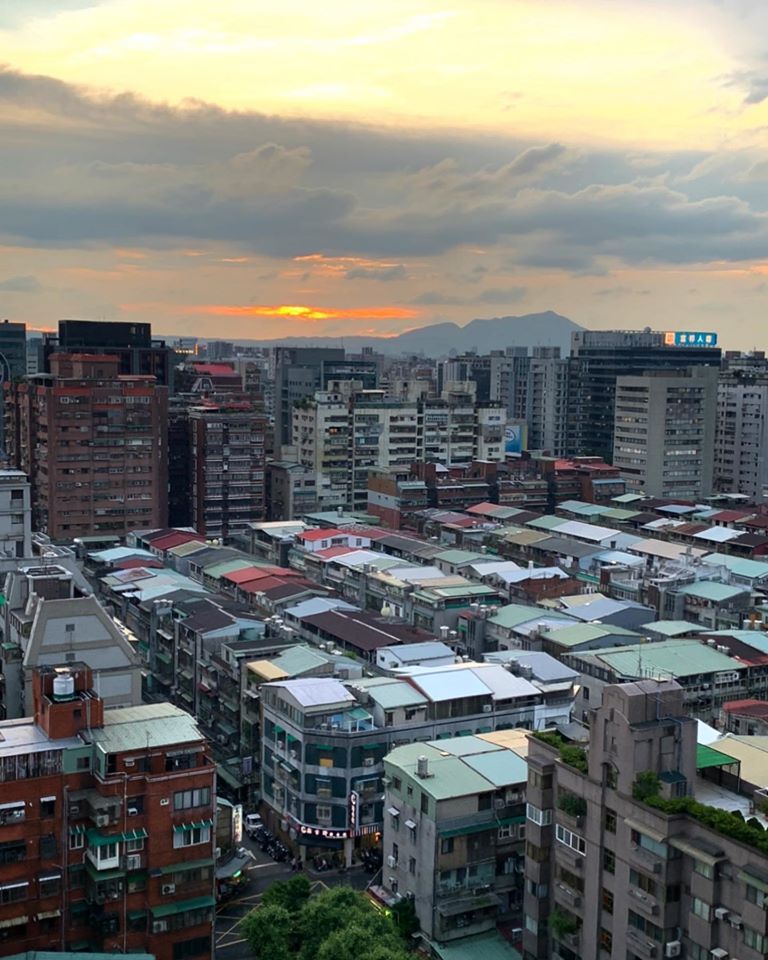One week ago I was all set to write a post about how events in Taiwan had finally learned how to be good, which has not historically been the case.
In 2016 the taco festival was such a disaster that I left to grab potstickers because I could not get a single goddamn taco at an actual, literal taco festival where tacos were presumably being sold in exchange for money. Hot tip: if all your guests can get at a taco festival is a place in line where they're told "no more tacos", you are not running a taco festival, you are running a 'stand in line and cry hangrily' festival.
Later that year Santa died thanks to the fake "Strasbourg" Christmas Fair where they played Green Day (?) and pushed you to buy vouchers that couldn't buy much -- I ended up with a random assortment of food items that I didn't want and mulled wine that wasn't good. The church running it suggested donating unused vouchers back to them, which felt like a scam.
This year, I walked through the European Christmas Fair in Hsinyi. It was crowded but not overly so, and I didn't begrudge the fact that the many food stalls had mostly run out of food as it was near the end of the final day. It was fairly easy to buy other items including gingerbread cookies and Polish ceramics. I had skipped the taco festival, but friends said that the implementation of ticketing, crowd control and better ordering and space planning made it more of a success. In 2020 I happened across a small Christmas market outside the old Taichung train station, and it was lovely.
Events like these in Taiwan seemed to be turning a corner, and I was happy to see it. It'd always confused me how night markets can run fairly smoothly, but events just couldn't. Night markets might be crowded (a side effect of living in a densely populated country) and there might be a few lines, but you could always get food. Perhaps people had taken advantage of this obvious local logistical knowledge to, y'know, plan less shitty events?
With this in mind, I enthusiastically headed over to the German Christmas Market held near Maji Square on Saturday night, as visions of bratwurst danced in my head. This could be good, I thought. I'd heard last year it was good.
Alas. Whatever the German Christmas Market was this year, it was the exact opposite of good.
I could forgive the long line to get in, as contact tracing was required, and the slow trickle of entries meant it was never so crowded that you couldn't walk around. We managed to get gluhwein and order bratwurst after waiting in a second, shorter line. Okay.
It was strange that someone pushed in front of us to demand a refund on her bratwurst, but perhaps she just wasn't hungry.
Then we trekked to the other end of the fair to wait in the hour-long line to actually get our food.
While waiting, we took turns as scouts hunting for other food. After getting jostled so that hot wine spilled all over his hand, Brendan stood in the bacon raclette sandwich line only to get one person from the front before they announced they were sold out. I checked out the Christstollen (lowest price NT$800, more like a gift than a Christmas fair snack. I didn't buy any.) Another friend stood in line for an hour to get some chicken thing with peppers and a few slices of bread.
The line for Dutch sweets was just as long as the line for bratwurst. Almost halfway through our (hourlong) wait, the bratwurst sold out. We'd be served because we'd paid, but newcomers were out of luck. They'd just waited an hour to get into the market only to have just about every single actual food item unavailable.
I bought a beer out of spite. Also, I needed carbs. This made me drunker.
Seriously, how does one go to an outdoor event in Taiwan and not get food? I am pretty sure that's against the law here. If a Taiwanese sausage vendor had set up just outside they would have made a fortune.
I will say, the food I was able to get was very good. The alcohol was all top-notch. They just needed several thousand more bratwursts and more stands to sell them.
Determined to find more food, I wandered the emptier section of the market, where there were lots of stalls but very few people.
The music was holiday appropriate, or at least mostly Christmas-adjacent (I'm not sure what the guys in matching suits dancing in sync like K-pop stars were doing, but whatever).
What else was there? Occupying prime real estate was the China Airlines booth. Though they had a raffle going for free tickets to Frankfurt (during a pandemic? Perhaps they don't have an expiration date), there was nothing else happening there. Next to them, a booth selling appliances.
Who goes to a Christmas market to buy an oven?
There was a Mercedes Benz parked by the Christmas tree. I am pretty sure everyone in Taiwan who afford a Benz has either already bought one or is aware of the brand. Nobody is getting their brand awareness raised at a Christmas market.
The stalls on the far end had an array of presumably German brands. You could buy some of this stuff -- but who goes to a Christmas market to buy cleaning products or padlocks?
The padlock stall seemed to just be...padlocks. At least the cleaning product stall was decorated with Christmas things.
"There's no fucking food," a friend remarked, "but you can buy everything you need for your murder dungeon. And a getaway car too!"
I don't think I saw any chains or handcuffs for sale (essential components of a Holiday Murder Dungeon). That's a shame, as it might have made the whole thing a bizarrely fun experience. But no. It's almost worse that they half-assed the whole Murder Dungeon angle. On Christmas and Murder Dungeons both, go big or go home.
"Maybe because people do buy cleaning products at Lunar New Year, they thought they'd buy them at Christmas?" I said to no one in particular.
A Taiwanese friend scoffed. "Nobody's silly enough to think that. Maybe because it got rave reviews last year it became this business sponsored thing and that killed it?"
"German Christmas Markets are supposed to be 90% food. FOOD!" added the person in our group who'd lived in Germany for over a decade. "Not padlocks. I just wanted some burnt almonds. I cannot eat a fucking padlock!"
After the obligatory hour in line at Oma's, our other friend returned with his tasty-looking chicken thing. We'd finally gotten our bratwurst but it hit too late to absorb the rummed-up gluhwein. I mean, I know I say this a lot but I really needed more hot sausage, a lot faster than I freakin' got it. What is a German Christmas Market even good for if I can't get absolutely stuffed with wieners?
"So I'd actually just wanted some cookies," he said, putting small bags of speculoos, sugar cookies and candied almonds on the little table we'd cornered to form a Bitching Circle. "Turns out, you could walk right up and buy the cookies. The line was for hot food. But nobody makes that clear."
We ate most of his cookies.
It didn't matter that we weren't full. By 7pm every stall was sold out of food, at a market that would traditionally be mostly food. Imagine turning up to a night market and there are 3 food stands and they all sell out by 7. But you can buy a washing machine! Would you return?
We headed to Maji Square. I teetered, one friend anxiety smoked and the person who hadn't gotten anything at all hunger-marched. We found a bar that served exactly one type of panini and wasn't packed, so we stuffed ourselves with ham and Emmenthal paninis until we felt better. It was run by a French guy who could understand my drunk ordering (it helped that he only had the one food item). Clearly the French know how to feed people better than the Germans.
Honestly, I thought Germans were supposed to be good at this Christmas Market thing. But I, a boorish American, have some advice for the German Office on how to make next year's market less like a Holiday Murder Dungeon Superstore and more like, well, a Christmas market.
First, by all means have sponsors. But make sure that you have more than a half-dozen stands selling actual food. One bratwurst stand? One raclette stand? One place in the whole market to buy Christmas cookies and they don't even tell you that you don't have to wait in the hot food line for them?
Certainly, this fair needed far more hot meat injection opportunities. They needed to quintuple -- no, octuple -- the number of places selling snacks and food for immediate consumption, so no one line gets too long. The only things sold in multiples in the whole market were beer and wine, which is of course why I got trashed. Of course that moves faster because it's easier to serve, but multiple food stalls cut down waiting time.
And order enough food. No Christmas market should sell out hours before it closes.
The only explanation for why this seems to keep happening at events like Christmas markets and taco festivals is that foreigners planning for them don't seem to take into account the crowds generated by the classic Taiwan combination: high anticipation and dense population. Night market stalls know what it means to be crowded in a Taiwan sense, and plan appropriately. It's time foreign-run events figure it out, too (or just collaborate with locals to work this stuff out).
Have a meeting with all the sponsors. Tell them to make it Christmassy or GTFO. Gandi.net had the right idea with this, selling hot wine under a sign with their name on it. Now I remember gandi.net as the cool kids at the Christmas party. Not Mercedes Benz.
Here, I'll even give them some free ideas, although they are probably not genius ideas because I did indeed have them while hopped up on Gluhwein.
Padlock Guys: You know that thing where people put love locks on a bridge or fence to show they'll be together forever? Riff on that with Holiday Love Locks, which are lightweight locks you can write or paint your name on (painting service costs extra for those who don't want to DIY). They come in an array of holiday shapes and colors, including hearts, and are lightweight so you can hang them as ornaments on a Christmas tree, string of lights, holiday lantern etc. You can set aside part of your display for actual padlocks, and put the fake ornament ones into branded pouches.
Cleaning Product Guys: Have you not heard of holiday-scented cleaning products? Maybe you don't want to put out a whole new line of stuff, but sell some scented candles, sachets, potpourri or room sprays to your lineup. Do raffles where buying something will enter you to win one of your products.
Mercedes Benz: I'm not really into cars but someone who is would definitely buy Benz-logo or car-shaped iced Christmas cookies. Snowglobes and mini snowglobe ornaments with little Benzes inside! There are people who will totally buy that as a cute gift for a loved one dreaming of owning a real Benz someday. Soft pretzels shaped like the Benz logo! I'd buy that, because I like soft pretzels.
Bosch and other white goods sellers: Cookies and other baked goods are the obvious choice here. Team up with Mr. Mark or Oma's for these things, with free samples of pastries and breads. Soft pretzels and cinnamon rolls in branded paper pouches (or bags or boxes for takeaway) under a big sign that says "It bakes better in a Bosch!" Put business cards for your actual stores in the bags maybe. Whatever. Or team up with the Polish office to sell Polish ceramicware, with advertising about how well it survives your awesome dishwashers.
China Airlines: I mean there are the obvious airline-themed stocking stuffers, ornaments and iced cookies, but they fly to Frankfurt. Frankfurter wurst! Anything for more of the hot wieners you know we all crave.
Everyone else: Baby Jesus cried because of this fair, you guys. Have your sign and whatnot, but make sure you actually do Christmas things at a Christmas fair. Sell little bags of holiday nuts, chocolates, snacks or dried fruits in branded bags. Get some sponsors who actually do food and drink and have a whiskey stall, a hot toddy stall, a stall with chocolates (eat now or take home), a stall with mini cinnamon rolls.
Get places that make actual gift-y items to sponsor. Like little jars of jam and chili sauce or earrings that look like sleigh bells. Get all the wine sellers that seemed to do well in Hsinyi last week to mop up again handing out samples and selling bottles for a second weekend in a row.
I mean I don't even care if some of it's tacky -- that makes it better. You had booth babes in Sexy Santa gear, which is totally fine but it also means that anything goes.
Keep some of the music, but you couldn't get like a band in lederhosen up there doing a tuba thing? I associate that with a stereotype, and therefore it's a good idea!
But really, just have more food and stuff one might actually buy at a Christmas market. You were on the right track with the alcohol but it's better if you don't make it so that the only thing people can reasonably do at your market is get trashed.
Otherwise, do better next year because this was a middle finger to Rudolph the Red-Nosed Reindeer.
Overall rating? 2/10 (extra star for the good and plentiful alcohol). Needs more wiener.


